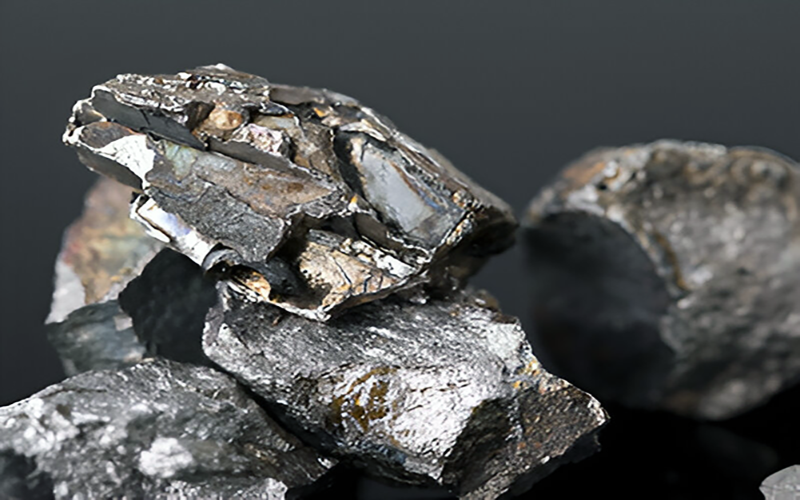Ferro molybdenum (FeMo) is an important alloy composed primarily of iron and molybdenum, typically containing 60–75% molybdenum by weight. It is a critical additive in the steel and alloy industries, where it enhances mechanical properties such as strength, hardness, corrosion resistance, and weldability. The addition of molybdenum to steel significantly improves its performance under high temperature and pressure conditions, making ferro molybdenum indispensable in various high-stress applications.
The production of ferro molybdenum generally involves the reduction of molybdenum oxide (MoO₃) using ferrosilicon in the presence of iron. This process is carried out in an electric arc furnace or blast furnace. The resultant alloy is then cooled, crushed, and screened into granules or powder, depending on the customer’s requirements. The exact composition and form of ferro molybdenum can be customised for specific industrial applications.
One of the primary uses of ferro molybdenum is in the manufacture of alloys and stainless steels. Molybdenum enhances the hardenability and toughness of steel, allowing it to maintain its strength at elevated temperatures. This makes ferro molybdenum a vital material in producing high-speed tool steels, automotive parts, gas pipelines, and components for the aerospace and defence sectors. It is also crucial in the oil and gas industry, particularly for drill bits and equipment subjected to extreme operational conditions.
Beyond steelmaking, ferro molybdenum is used in the production of superalloys, which are essential for turbines and jet engines. Its presence in these alloys ensures resistance to heat, wear, and corrosion—qualities that are critical for performance and safety in demanding environments.

Economically, ferro molybdenum plays a significant role in global trade, particularly among countries rich in molybdenum resources such as China, the United States, Chile, and Peru. The market for ferro molybdenum is influenced by trends in the construction, automotive, and energy sectors, as well as fluctuations in molybdenum prices and environmental regulations.
In summary, ferro molybdenum is a vital alloying agent that improves the performance of steel and other metals under harsh conditions. Its unique properties and versatility make it essential in modern engineering and industrial applications, supporting advancements in infrastructure, transportation, and energy technologies.
HSLA steels, Structural steels, High-speed/tool steels, Acid-resistant steels, Steel casting, Welding electrodes, Super alloys
| Bulk Density (lb/ft³) | Apparent Density (g/cm³) | Melting Point (°C) |
|---|---|---|
| 4 | 8.8 | 1950–1850 |

| Mo | C | Cu | Size | Packing |
|---|---|---|---|---|
| 65% min | 0.10% max | 0.5% max | 10–50 mm | drums or big-bags |

© 2013 Vertix Co. All Rights Reserved. Leading Supplier Of Foundry & Metallurgical Materials